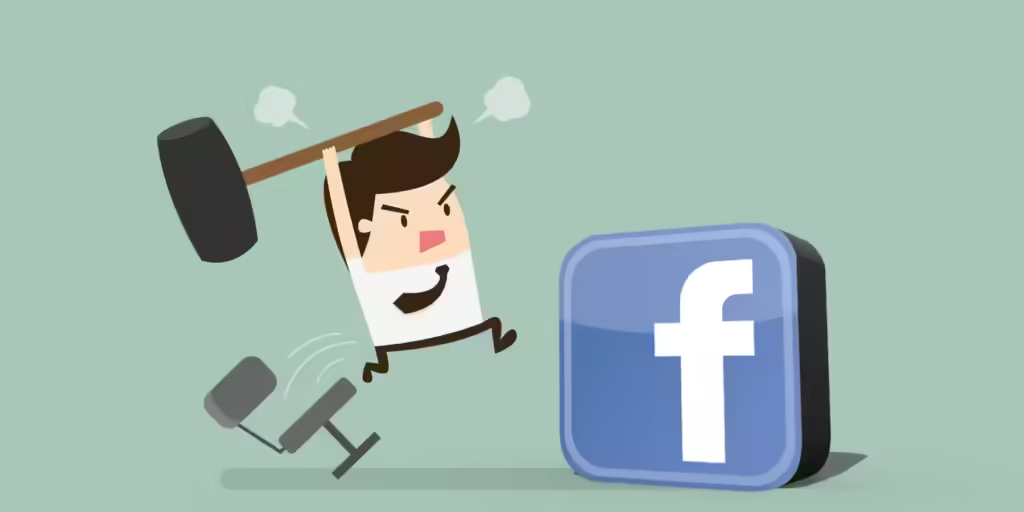Hi there! Most people don’t realize how much time they waste by posting one post at a time on Facebook. This seemingly harmless habit can quickly eat into your day, leaving you feeling unproductive and frustrated. Each post demands your attention, leading to constant interruptions and a fragmented focus. Understanding the hidden costs of this posting style can empower you to streamline your social media activities and reclaim your valuable time. Let’s explore the nuances of this time trap and discover how you can enhance your efficiency on Facebook.
The Psychology of Social Media Engagement
To understand why you find yourself trapped in the endless cycle of posting on Facebook, it’s vital to explore the psychology behind social media engagement. The dopamine rush you experience from each interaction can create a compulsive need to share more content, often leading to an unproductive use of your time. This engagement is rooted in human connection and validation, compelling you to seek immediate feedback and recognition from your social circles.
The Instant Gratification Factor
Media platforms are designed to provide instant gratification, making it easy for you to get caught up in the satisfaction of immediate responses. Each notification can feel rewarding and creates a sense of achievement, which entices you to spend more time scrolling and posting instead of focusing on more productive tasks.
The Allure of Likes and Comments
On social media, the likes and comments you receive serve as an enticing form of validation. Each time you see a notification, your brain releases feel-good chemicals, which keeps you returning for more. You’re likely drawn to the pleasure derived from forming connections and increasing your visibility among peers.
A simple ‘like’ or comment can significantly impact your mood, making you feel appreciated and acknowledged. However, this pursuit can also lead to an endless cycle of checking your notifications and refreshing your feed for quick emotional boosts. This behavior can quickly destabilize your daily routine, causing you to lose focus on vital tasks in favor of chasing fleeting social approval.

The Time Sink of One-at-a-Time Posting
While you may think that posting one at a time is a manageable strategy, it can quickly turn into a time-consuming task that drains your productivity. Each individual post requires your attention, from crafting the message to selecting the right images, and this process can fragment your focus. As you juggle multiple posts throughout the day, you find your day disappearing into a cycle of constant updates and interruptions, pulling you away from more valuable activities.
The Downtime Dilemma
At times, you might find yourself waiting for engagement on your posts before moving on to the next. This downtime can feel unproductive, as you anxiously refresh your feed, hoping for likes or comments. Instead of creating a streamlined content strategy, you waste time in limbo, questioning if your next post will resonate more than the last one.
The Multitasking Myth
Across the board, you may believe that juggling multiple tasks while crafting posts is an effective way to maximize your time. However, this multitasking can lead to diminished quality and attention to detail, making your social media efforts less impactful. When you split your focus, your posts lack the depth and engagement needed for success, ultimately consuming more time than if you implemented a dedicated posting strategy.
Posting one piece at a time often leads to scattered thoughts and rushed content creation. You might think multitasking allows you to accomplish more, but in reality, it hampers your ability to create meaningful interactions. By segmenting your attention between different tasks, each post may lack the intentionality required to captivate your audience. Evaluating your posting schedule and adopting a more cohesive approach can save you time and enhance your overall impact on social media.
The Impact on Productivity
Clearly, the habit of posting one post at a time on Facebook can significantly hinder your overall productivity. This constant engagement with social media diverts your attention away from tasks that truly matter and creates a cycle of distraction. For insights on how social media can affect your focus, check out Social media drains me and makes me unproductive. How.
Cutting Into Focused Work Time
Before you know it, your time allocated for focused work shrinks with every post. Each moment spent crafting a status update or scrolling through your feed pulls you further away from the tasks that require your undivided attention. This fragmentation makes it nearly impossible to maintain a state of deep concentration.
The Cost of Task Switching
After you post, the cycle of task switching begins, impacting your efficiency. Each time you switch between social media and your main tasks, you lose precious time refocusing your mind.
Task switching is more than just a simple change of tasks; it involves a cognitive cost that can slow you down significantly. As you navigate between social media and your work responsibilities, your brain must reorient itself each time, leading to reduced efficiency and an increase in mistakes. This constant toggling strains your mental resources, making it harder to stay engaged in meaningful work, ultimately draining your productivity throughout the day.
Strategies for Efficient Posting
Once again, optimizing your social media strategy can save hours of your day. By implementing effective techniques, you can ensure that your Facebook content reaches your audience without draining your time. Focus on creating a streamlined approach where you can post content efficiently and consistently, allowing you to engage with your audience without the constant interruptions of daily posting.
Batch Content Creation
By gathering ideas and creating multiple posts at once, you can significantly reduce the time spent on social media. This technique not only helps you stay organized but also allows your creativity to flow more freely. Brainstorm topics, create visuals, and write captions during a dedicated content creation session, ensuring you have a repository of posts ready to go.
Scheduling Tools and Techniques
Between managing your day-to-day tasks and creating content, scheduling can be a game-changer for your social media strategy. By using scheduling tools, you can automate post distribution and maintain a consistent posting schedule without being tethered to your device. This allows you to engage with your audience effectively, even when you’re busy with other responsibilities.
Posting ahead of time with scheduling tools like Buffer, Hootsuite, or Facebook’s native scheduling feature lets you plan your content calendar in advance. You set your posts to go live at optimal times, aligning with when your audience is most active. This approach ensures that you maximize your reach while also freeing up your schedule to focus on engaging with your community and analyzing performance, leading to better outcomes without added stress.

Setting Boundaries with Social Media
Despite the allure of social media engagement, you need to set clear boundaries to protect your time. It can be easy to get lost in each post, but a focus on other priorities is necessary.
Time Management Tips
An effective way to manage your time on social media is to implement practical strategies. Here are a few tips to consider:
- Set specific times for checking social media.
- Limit the duration of each session.
- Use tools to schedule your posts in advance.
This will help you maintain control over how social media fits into your day.
Establishing Clear Posting Goals
Against a backdrop of distractions, establishing clear posting goals is vital for your social media success. By identifying what you want to achieve with each post, you create a focused approach that aligns with your values and priorities.
Plus, setting these goals allows you to evaluate your content meaningfully. Ask yourself what purpose your posts serve—whether to inform, engage, or inspire. When you know your intentions, you can post with greater purpose and efficiency, freeing up your day for more important tasks without sacrificing your online presence.
The Broader Implications of Social Media Habits
After consistently posting one at a time on Facebook, you may find your mental focus and productivity slipping away. Engaging in such patterns can lead to a false sense of connection, impacting your overall well-being. It’s important to recognize these habits, as they shape how you interact and form relationships online. For deeper insights, explore When someone posts a deliberately – Psychology Today.
Mental Health Considerations
Mental health can be significantly affected by your social media behavior. Frequent interruptions for posting can create anxiety and distract from more fulfilling activities. Being aware of how such habits impact your mood is vital for maintaining a balanced mindset.
Impacts on Personal Relationships
Health and well-being can also be linked to how you engage on social platforms. Frequent, isolated posting may lead to superficial interactions and misunderstandings with friends and family, undermining deeper connections.
Personal relationships can suffer when your focus is diverted by the need for engagement on social media. Instead of nurturing in-person connections, you might find yourself prioritizing virtual interactions, which can feel less meaningful. Allocating more time to genuine conversations rather than online exchanges can significantly enhance the quality of your relationships.
Conclusion
So, if you find yourself posting one update at a time on Facebook, you may be inadvertently siphoning away your valuable time and focus. Each individual post breaks your concentration and adds to a cumulative drain on your productivity. By batch posting or creating a content schedule, you can conserve your energy and streamline your social media strategy, allowing you to engage meaningfully without the constant interruption. Optimize your workflow and regain control of your day by being mindful of how you use platforms like Facebook.

FAQs
What is “The Time Trap” and how does it relate to Facebook posting? “The Time Trap” refers to the phenomenon where posting on Facebook one post at a time can lead to significant time loss and mental fatigue throughout your day. Each time you create a separate post, it requires your focus, energy, and often involves considering responses or engaging with comments. This fragmented approach can disrupt your workflow, make it difficult to concentrate on important tasks, and ultimately drain your productive hours.
How can one optimize their Facebook posting strategy to avoid time loss? To optimize your Facebook posting strategy, consider batching your content creation instead of posting individually throughout the day. Gather your ideas and create multiple posts in one sitting. You can also use scheduling tools to queue your posts for later publication. This approach minimizes distractions and allows you to spend more time on other important activities, enhancing your overall productivity.
What are the long-term effects of inefficient posting habits on social media? Inefficient posting habits on social media can lead to chronic distractions and decreased overall productivity. Over time, you may find that frequent interruptions from each post pull you away from more meaningful tasks or deadlines. Additionally, this can contribute to burnout, as the constant engagement required can feel overwhelming, leaving you less motivated to participate online. Adopting a more organized and thoughtful posting strategy can greatly improve your mental well-being and work-life balance.

